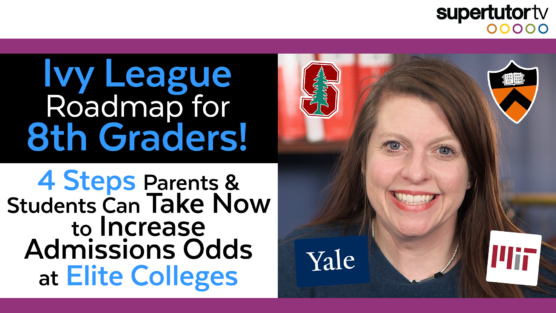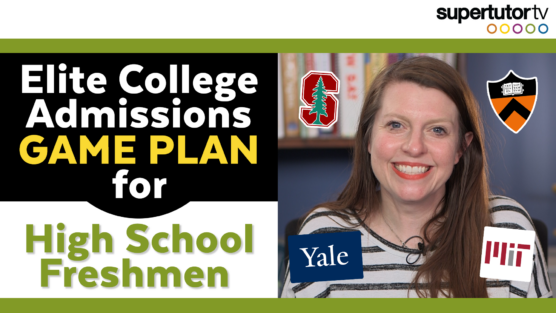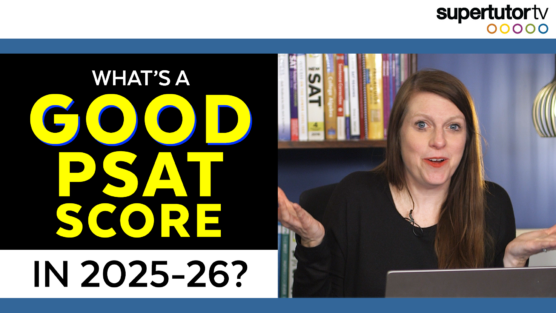Brooke sat down with Janet Godwin, the CEO of ACT to talk about the future of the ACT. We know CollegeBoard has announced numerous changes to the SAT, but what’s going on with the ACT?
The first question that I have, which I think a lot of people have, is the ACT going fully digital with its college admissions test?
Godwin: Great question Brooke, and thanks for having me on today. So, the short answer to the question of are we going to go to 100% digital for our ACT National or Saturday testing is no. We are definitely exploring moving to a digital delivery option, but it will be an option. We plan to continue to provide a paper option because choice matters. We know that accessibility and equity can be an issue for different populations across the country, etc. And so, we are committed to choice, so we will have a paper option, but we are looking into offering a digital version of the ACT as well.
We’ve been offering digital delivery in our international market since 2017. We’ve been doing digital delivery in our state and district, or our school day testing, for many, many years. 40% of our testing in the state and district is already online. We have lots of experience in this space, but we’ve also learned that especially domestically an option with paper is going to be important for our stakeholders, and so we’re committed to providing that option.
A second, follow-up question to that is on adaptive testing. The SAT is looking at getting shorter. Is the ACT looking into adaptive testing? For those unfamiliar, adaptive testing is the idea that a student is given a section of the test, and if they do really well, they’ll be given a new, harder section at their level. So you can determine a score with fewer questions.
Godwin: Absolutely. We’re researching adaptive testing as we look at providing an online version of the ACT. We’re exploring that, we’re exploring whether that’s the best approach for students. And so we haven’t made that determination yet. There are definitely pros and cons, Brooke, for adaptive testing. So we want to be very, very thoughtful. We do believe that there’s some work we need to do to shorten the test in certain sections and to reduce testing time. We know it’s an issue for students and test administrators. Whether we do that through adaptive testing or other means is still something that we’re researching very carefully.
So I’m in California, which, as many people know, The University of California System has gone test blind. And so as a result, many school counselors and administrators in California looking at this have decided, “I guess this means we don’t have to host an SAT or ACT.” In turn, that means we have fewer places we can take these exams, and some people can’t get seats to take the exam. What is ACT doing to ensure test accessibility?
Godwin: It’s a really important question. So we monitor our capacity extremely carefully. We will open up sites and prepare to open up sites based on trend information in terms of testing volumes and things like that. And so then when we do open up registration, we monitor capacity, and if we see sights filling up quickly we do try to create and expand capacity, whether it’s through that existing center or bringing other centers there in that location up for testing. So, we monitor very carefully, we do our best to expand capacity where we see the need for it.
We do that in a number of different ways. Additional sites–We’ve leveraged what we call pop-up sites too to create outside of a typical high school or college campus. It could be a convention center or a hotel. And we leveraged that technique pretty successfully I would say during the pandemic to be able to open up testing sites where schools were still closed. So we’re looking at ways to expand our use of pop-up centers where we’ve got local demand that we’re not able to meet through our traditional channels.
I will say, California has been hard just because of the test blind position of the college systems there, but the reality is so many students in California are applying to schools outside of the state, and so we know California is a priority, and we’re continuing to find ways to create more capacity. Pop-ups are a prime example.
And then July is a tough test date. I like the July test date, but so many schools are not open in the summertime for external activities like hosting a test. July does tend to be a little harder for us to recruit sites for testing. Again, we’re looking at seeing if we can leverage that pop-up capability to augment and create more capacity for July. We’ve heard the same thing, that students and teachers like that because it’s a little less stress. Usually, kids aren’t in school, so they can have more time to prepare.
So next question, this is a bit of a nichey question. So the VQIs, or Visual Quantitative Information questions. It was announced by the ACT some time ago that you might see VQI questions on an ACT exam. These are data interpretation questions. There’s a chart, there’s a graph, and these would be in the reading section. To my knowledge, I haven’t heard of very many students encountering these. What’s the scoop on these? Should students be anticipating these in the near future? Is it just some testing sites?
Godwin: Great question and you covered the type of question, the Visual Quantitative Information, it’s adding some visuals into the reading passage and asking students to interpret that visual interpretation along with the reading. We did start incorporating VQI items in the reading section on two forms in 2021. And we’ll be continuing to include them on future ACT forms. We need to make sure we give some opportunities for educators to be able to help students prepare for these kinds of items, and so we’ll be working on ways to do that. We’re excited about this particular kind of question. I think it’s a little bit more real world, if you will, in terms of the stimuli that students are encountering in classes, but also when they get out of high school and they’re in a work environment or a college environment.
We think it’s an interesting, very relevant construct, and so we’ll be continuing to integrate these into our forms moving forward. Again, our goal would be to provide information about how many of these questions, and provide materials to help students prepare for them, and understand the nature and construct of it.
CollegeBoard has been dropping new questions and new tests. Is there anything else new with the ACT that we can look forward to?
Godwin: So definitely the digital option, again we’ve got tons of experience–years of experience at scale delivering tests in a computer-based format. Stay tuned, we’ll be making some moves in terms of starting some proof of concepts regarding a digital version of the ACT, and obviously exploring ways to shorten it a little bit, make it more accessible for students.
Another thing that we’re really excited about is an app that we’ve launched. It’s still in soft launch. We’ll have a larger release in September. We’re calling it Encourage. It’s a post-secondary planning tool to use in high school. There will be a version for educators as well. These are free tools to help students understand, What am I interested in? Based on my interests, what’s a great major, or a great school to go to? How do I search for scholarships that I’ll be eligible for? The Encourage app, again you can go find it in the App stores. It’s out there now in a soft launch beta version. But it is around that planning for what am I going to do after high school. And then take the steps to be prepared academically, socially, emotionally, as well as financially to be ready for success.
And eventually too, part of our vision at the ACT is we have always and will continue to support students pursuing that 4-year college pathway. That’s core to what we do and what we’ll continue to be. But we also recognize there’s a number of students in high school who do not choose that college-going pathway after high school, and we want to be able to provide information and resources to students who are exploring the credentialing path, or an apprenticeship path to work.
And so the vision for Encourage is not just for students planning for that college path, we’ll always provide that, but we want to provide some information on alternative pathways for students, recognizing that the transition from high school to what’s next is a very, very big deal, and students have variable inputs to help them through that planning journey. We’re committed at the ACT to provide good, free, accessible information for students, parents, school counselors, other supports, tutors to help provide information to guide students through a really, really important part of their life.
Something I hear loud and clear is that students and families do need this sort of support, because in our world right now, it can be a murky process to figure out what to do after high school and what steps to take in high school to prepare for that. I’ve heard it from school counselors that could be using support, students and families need support. I’ve heard from enrollment admissions officers who are saying, especially after the pandemic, that students are coming onto campus perhaps without all the preparation they would’ve normally had pre-pandemic. Information and resources to help students understand their goals, understand how to best be prepared for their goals.




